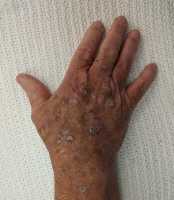Addiction, Author Interviews, CDC, Emory / 20.03.2019
Nonmedical Use of Prescription Drugs a Common Cause of Emergency Room Visits
MedicalResearch.com Interview with:
CDR Andrew Geller, MD
Medical Officer, Medication Safety Program
Division of Healthcare Quality Promotion,
CDC
Atlanta GA 30329
MedicalResearch.com: What is the background for this study?
Response: There has been a lot of recent attention on drug overdoses in the United States, particularly fatal overdoses which involve opioids. But the overall frequency with which patients end up in the emergency department (ED) due to nonmedical use of medications across the US is unknown.
- Nonmedical use refers to a spectrum of circumstances, including intentionally using more medication than is recommended in an attempt to treat a health condition (therapeutic misuse) to using medication to attain euphoria or get “high” (abuse).
- Specifically, we used data from a nationally-representative sample of hospital EDs to identify the medications with the highest numbers of emergency visits for harms following nonmedical use of medications and to identify the patient groups with the highest risks.




